|
So many people are tuning into the viable possibilities of Transformative & Healing Justice as alternatives to Punitive Carceral Justice. People are turning to frameworks and strategies for community held responses to conflict, violence & harm that center healing & transformation of harmful behaviours without replicating the violence of isolation and disposability. Here are some some essential reads to get you started on your learning journey!
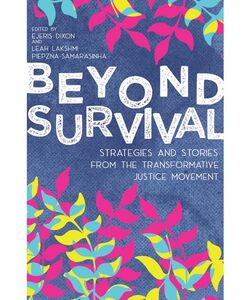 Beyond Survival: Strategies and Stories from the Transformative Justice Movement In this collection, a diverse group of authors focuses on concrete and practical forms of redress and accountability, assessing existing practices and marking paths forward. They use a variety of forms—from toolkits to personal essays—to delve deeply into the “how to” of transformative justice, providing alternatives to calling the police, ways to support people having mental health crises, stories of community-based murder investigations, and much more. At the same time, they document the history of this radical movement, creating space for long-time organizers to reflect on victories, struggles, mistakes, and transformations. Ejeris Dixon (Editor); Leah Lakshmi Piepzna-Samarasinha (Editor) For purchase at AK Press View a conversation with Leah Lakshmi Piepzna-Samarasinha & Laura Flanders - Mutual Aid Justice & Beyond Survival 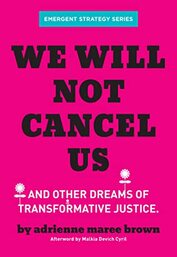 We Will Not Cancel Us: And Other Dreams of Transformative Justice In We Will Not Cancel Us, movement mediator adrienne maree brown reframes the discussion for us, in a way that points to possible paths beyond our impasse. Most critiques of cancel culture come from outside the milieus that produce it, sometimes even from its targets. Brown explores the question from a Black, queer, and feminist viewpoint that gently asks, how well does this practice serve us? Does it prefigure the sort of world we want to live in? And, if it doesn’t, how do we seek accountability and redress for harm in ways that reflect our values? Written by adrienne maree brown. With an Afterword by Malkia Devich-Cyril. You can purchase the book here. You can read the original blog post which became the reader on adrienne's website here. This list is not exhaustive. There are many more books to explore & we plan to keep sharing along with reviews and other goodies. Let us know what you think of these & feel free to suggest others! Rittenhouse will be digging into our archive to share vintage TJ & Rj resources as well as producing some new print resources in 2021, so stay tuned!
#Support Community Held Transformative Justice!
3 Comments
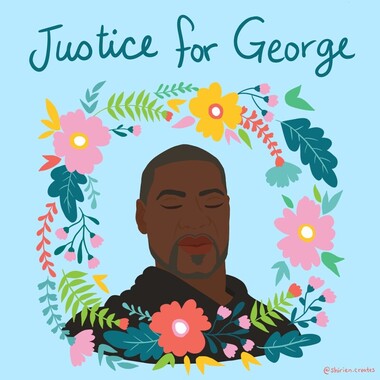 If we want to take Reconciliation seriously and to support the Black Lives Matter movement, we need to fundamentally change our understanding of justice in this country. No doubt you heard about the death of George Floyd (and so many others), and saw calls to defund police. If the presence of police makes you feel safe rather than unsafe, it’s hard to imagine living without them. Even if you don’t feel that way, dismantling a fundamental piece of our societal structure isn’t easy to envision. It’s not just the police that embed structural racism into the criminal justice system, though. Indigenous Canadians are 10 times more likely to be incarcerated than non-Indigenous Canadians. They represent 30% of all admissions to incarceration, despite accounting for about 4% of the adult population. And when they are incarcerated, their children are more likely to be taken away from them, and put into care. There are more Indigenous children in the child welfare system now, than were in Residential schools at any given time. So, what can we do? Fortunately, a lot of amazing people have been trying to create systems of true justice for a long time. Most of their ideas and the programs that have been established are classified broadly as “Restorative Justice” (RJ) or “Transformative Justice” (TJ). The basic ideas of RJ and TJ are that when harm is done, justice requires us to look at the big picture. What led to the harm? Are there underlying factors or provocations that need to be addressed? If we’re not going to resort to capital punishment or locking the person responsible away for life, then we need to find ways to reintegrate them into the community, and (ideally) ensure that something similar is unlikely to occur again. We need to recognise that all people make bad choices sometimes, and find ways to move forward, find meaning, and restore community. Good parenting advice no longer advocates punishment as an effective means of addressing negative behaviour, but punishment is still the basis of our criminal justice system. The idea of Restorative Justice is that we should try to restore relationships and community after harm has occurred. The idea of Transformative Justice is that often harm arises because of dysfunctional situations that we need to transform rather than restore in order to build community. Rittenhouse is a Toronto-based organisation that has been promoting and running RJ and TJ programs for over 20 years. Your support would go a long way toward keeping these programs running, and working to implement systems of true justice in Canada! Post by Joy Morris - Daughter of Rittenhouse Founder Ruth Morris Freelance designer Shirien Damra’s tribute to George Floyd @shirien.creates |
AuthorRittenhouse Archives
February 2021
Categories |
Rittenhouse: A New Vision
Healing Communities Through Transformative Justice
|
Contact Us
Rittenhouse: A New Vision
6 Trinity Square Holy Trinity Radical Community Organizing Hub Toronto, Ontario, M5G 1B1 |
Our work would not be possible without the generous support of our funders and donors. Consider making a donation today to continue the legacy of Transformative Justice in our communities.
|

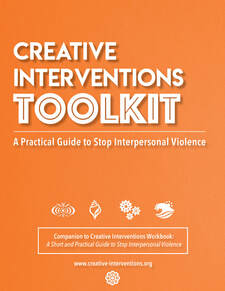
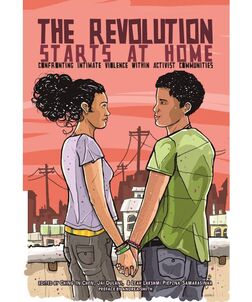
 RSS Feed
RSS Feed